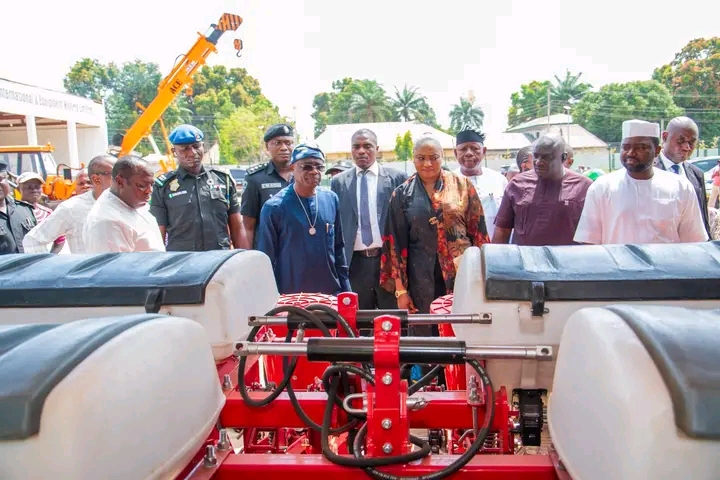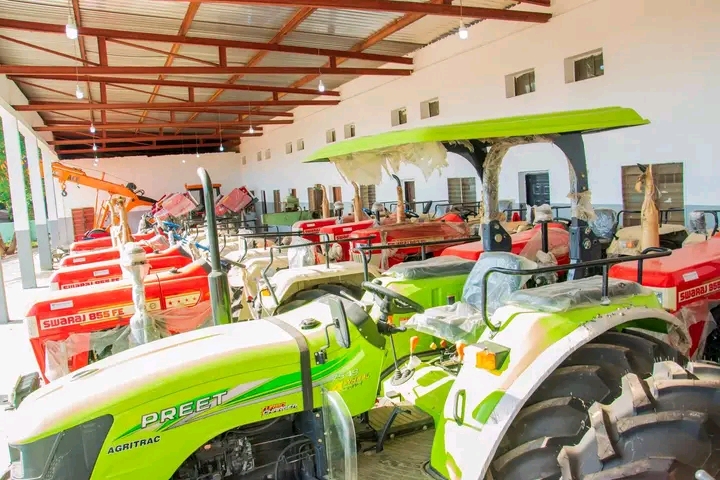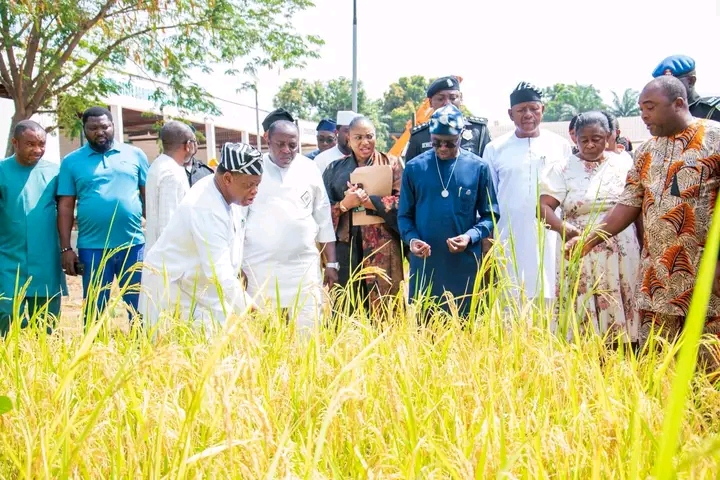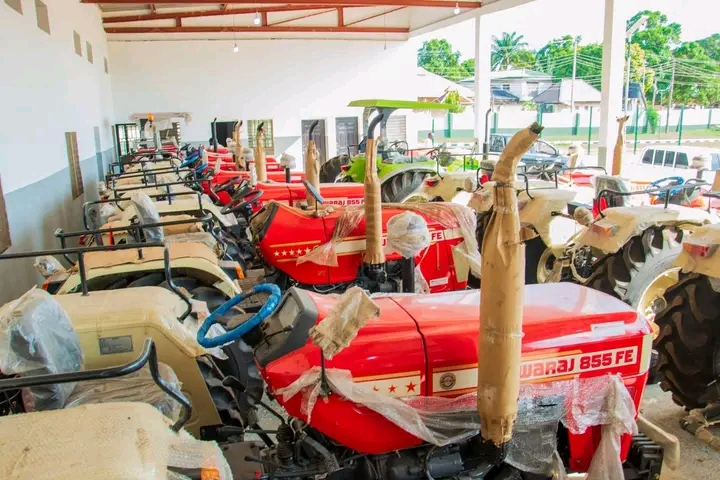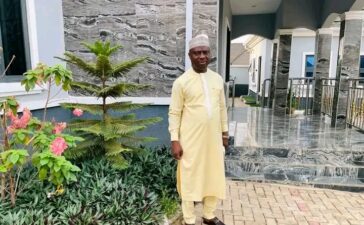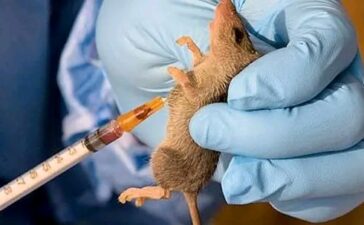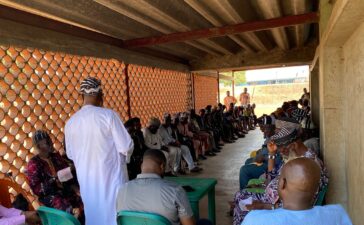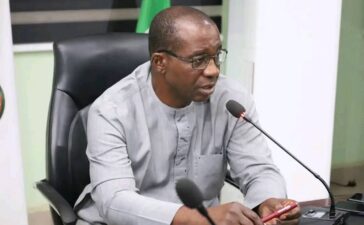Join our WhatsApp channel HERE for the latest Benue news and updates!
Governor Hyacinth Alia did not come to pose for pictures alone. On a sun-drenched Tuesday morning, he walked the floors of the Benue State Agribusiness and Mechanization Centre in Makurdi, boots crunching on fresh concrete, eyes fixed on row after gleaming row of brand-new tractors rolling off a Nigerian assembly line.
Forty-one tractors (some still wearing protective plastic on their seats) sat beside planters, ridgers, and boom sprayers, all stamped “Made for Benue, Assembled in Nigeria” through a public-private partnership with Mass International & Equipment Nigeria Ltd. This is the same fleet the governor flagged off in a colourful ceremony just days earlier, but now the machines are fully kitted, fuelled, and waiting for farmers’ hands.
Standing between a towering 110-horsepower giant and a nimble 75-horsepower workhorse, Governor Alia announced that the dry-season farming offensive begins in December. “These are not just tractors,” he told engineers and ministry officials. “These are the engines that will turn Benue into a year-round food factory.”
The numbers rolling out of the centre are staggering. Over 900 youths (most of them fresh secondary school leavers and university graduates) have already completed intensive training in tractor assembly, operation, and repair. Demonstration farms attached to the centre are heavy with improved seedlings: hybrid cocoa, disease-resistant papaya, high-yield rice, and oil palm varieties that promise to mature faster and produce heavier.
In a move that sent officials scrambling for maps, the governor issued an immediate directive: every single hectare of government-owned agricultural land across the state must be planted this season with improved seedlings of orange, mango, guinea corn, wheat, barley, and sorghum. “No more empty plots,” he said. “From today, any government land not under cultivation is wasted opportunity.”
He then turned to the farmers watching the live broadcast on their phones in villages across the state: “Improved seedlings are ready right now at the Bureau for Entrepreneurship and Wealth Creation. Come and collect. Free for the first batches, subsidized for the rest. This is your season.”
The partnership that made this possible is a quiet masterpiece. The Bureau for Entrepreneurship and Wealth Creation, working hand-in-glove with the Ministry of Agriculture and Food Security, brought in Mass International to set up the assembly plant inside the state-owned centre. Instead of importing fully-built tractors at inflated dollar rates, components arrive in containers and Benue youths put them together (creating jobs, cutting costs, and building skills that stay at home).
By the time the governor climbed into the cabin of one of the finished tractors and revved the engine for the cameras, the message was unmistakable: Benue is no longer waiting for permission or handouts. The state is building its own machines, training its own operators, planting its own improved varieties, and preparing to flood markets with food when much of Nigeria is praying for rain.
As the roar of diesel engines echoed across the centre and young technicians beamed with pride, one thing became crystal clear. December 2025 will not be business as usual on Benue farms. The cutlasses are being retired, the assembly line is humming, and the Food Basket is about to serve its biggest feast yet.

